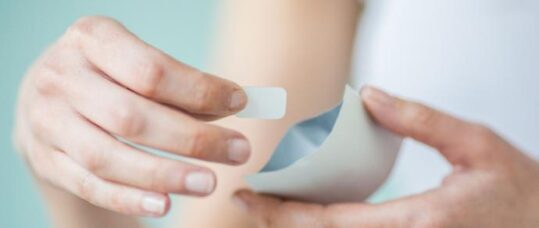‘I don’t want to try HRT – I’m worried about breast cancer’


Debunking common patient myths and misconceptions
The myth
Related Article: Measures to prevent cancer would be cost-effective, suggests economic report
Many patients believe that hormone replacement therapy (HRT) causes breast cancer.
Women are concerned that taking any form of HRT – even for a short time – will increase their chances of getting breast cancer. The anxiety over this belief is so great that women are often reluctant to use HRT, even for troublesome symptoms or when the treatment is required for young women with premature ovarian insufficiency (for whom hormone replacement, unless contraindicated, is advised).
Like many myths, it came from evidence that has been misinterpreted or generalised from out-of-date studies and resources. The link between breast cancer and HRT is well recognised and, in recent years, the issue has been further clarified. Nonetheless, the negative stories from previous clinical studies still dominate the opinions of women and even some healthcare professionals.
The reality
Most women use HRT for a short period of time and solely for the relief of menopausal symptoms. There may be early side effects and an initial adjustment of dosage may be required, but for many women who are menopausal yet generally healthy, the risks from using HRT are low. It should be noted that individual assessments are needed to be sure that women for whom HRT is contraindicated are advised accordingly.
The 2015 NICE guidance clarified the risks of breast cancer for women when using HRT during menopause:1
- The baseline risk of breast cancer for women around menopausal age varies in each woman according to the presence of underlying risk factors, such as age,
- weight and alcohol consumption.
- HRT with oestrogen alone is associated with little or no change in the risk of breast cancer.
- HRT with oestrogen and progestogen can be associated with an increase in the risk of breast cancer.
- Any increase in the risk of breast cancer is related to treatment duration and reduces after stopping HRT.
Breast cancer is a common cancer and, whether on HRT or not, women must check their breasts and report any changes promptly. Some women will have a higher baseline risk than others, perhaps due to family history. Starting HRT around perimenopause if the patient has had a hysterectomy, for example, and needs oestrogen-only HRT, will not increase the baseline risk.
Related Article: Mythbuster: ‘I don’t need a smear test – I’ve had my HPV jab’
Combined HRT increases risk of breast cancer when the patient has used it for more than five years. The NICE guidance also states that an extra five women per 1,000 using combined HRT for 7.5 years are susceptible to breast cancer from a baseline of 22 per 1,000. So, out of a typical 1,000 women using HRT, 22 might get breast cancer anyway (baseline risk), but after 7.5 years’ use of combined HRT an additional five women might develop the cancer while 973 will likely not.
Other risk factors include being overweight and drinking two or more units of alcohol a day. The risk of each is similar to or, in the case of obesity, more than that of five years’ combined HRT use. Smoking too is a risk factor, while exercising five times a week is slightly protective.2,3
Nurses advising women about the menopause, or indeed making choices for themselves, need to be familiar with these statistics and put them in context for patients. HRT remains the most effective treatment for menopausal symptoms and – although many women will not want or need it – for some, menopausal symptoms can be very bothersome, affecting home, work and social situations.
To avoid evidence-based treatment because of unfounded fears means that women’s lives are being affected on a daily basis. Women deserve a personalised risk assessment if they wish to consider HRT. This takes into account their medical history, family history and general health. HRT for symptoms of menopause will carry a low risk, but for those for whom potential risks might be higher – eg, family history of breast cancer or carrying a BRCA gene mutation – an informed discussion will help them to make the right choice for them.
References
Related Article: Smoking rates fall most significantly in the North of England
- NICE. NG23: Menopause – diagnosis and management. London: NICE; 2015
- Jones ME, Schoemaker MJ, Wright LB, et al. Smoking and risk of breast cancer in the Generations Study cohort. Breast Cancer Res. 2017;19:118
- Gonçalves AK, Dantas Florencio GL, Maisonnette de Atayde Silva MJ, et al. Effects of physical activity on breast cancer prevention: a systematic review. Journal of physical activity & health. 2014;11;445-454
Resources
- British Menopause Society. Hillard T, editor. Management of the menopause. 6th ed. Buckinghamshire: British Menopause Society; 2017 thebms.org.uk/publications/handbook/
- British Menopause Society. Understanding the risks of breast cancer thebms.org.uk/_wprs/wp-content/uploads/2016/04/WHC-Under standingRisksofBreastCancer-MARCH2017.pdf
- British Menopause Society. The Menopause course themenopausecourse.com/

See how our symptom tool can help you make better sense of patient presentations
Click here to search a symptom


Women are concerned that taking any form of HRT – even for a short time – will increase their chances of getting breast cancer.



